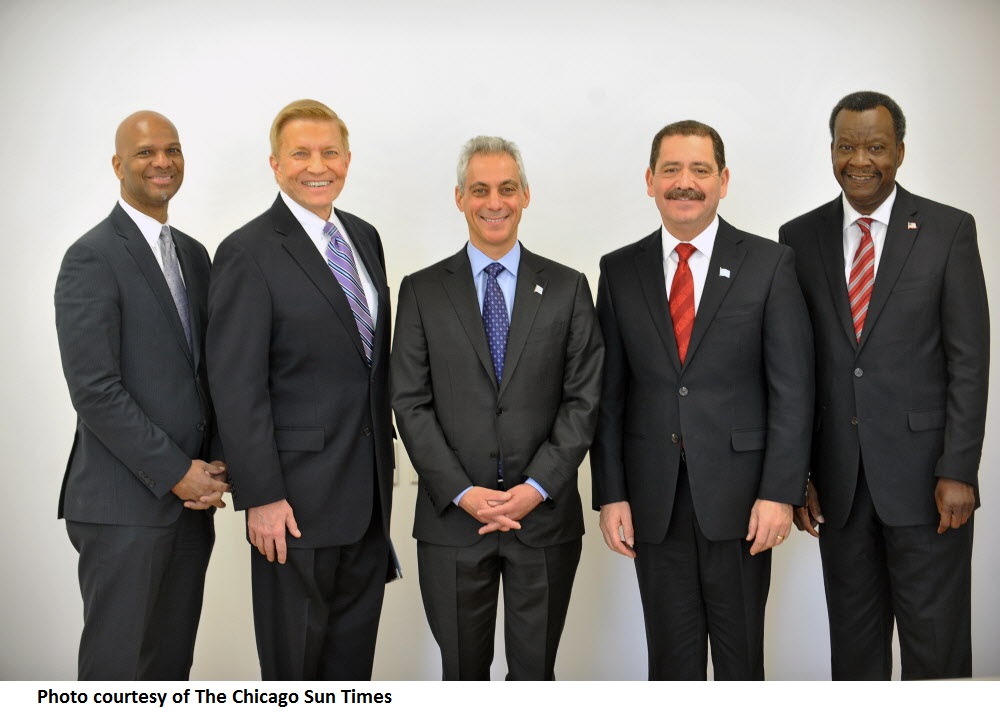Fair Elections Question Awaits Voters Tuesday
By Chuck Sudo in News on Feb 23, 2015 10:25PM
Campaign finance reform groups have tried, mostly in vain, since the Supreme Court's Citizens United decision to stem the tide of big money being funneled into the political process. Super PACs have become the norm, as a smaller group of donors contribute money to these and to groups shielded as nonprofit organizations that do not have to disclose their donor lists. The Koch Brothers are the most widely recognized names among these 1 percent donors, but both sides of the American political aisle deftly play the game in what has become a "if you can't beat 'em, join 'em" mentality. Citizens United hasn't leveled the playing field; it's laid that field to waste and salted it so that nothing good can grow.
Locally we've seen this play out with the $67 million Bruce Rauner spent for his gubernatorial campaign—one-third of that his own money. The Chicago mayoral race has been marked by Rahm Emanuel’s assembly line style fundraising—much of it from out-of-town donors. Chuy Garcia's campaign fund is flush, thanks to five- and six-figure donations from labor unions and their associated Political Action Committees. Millionaire businessman Willie Wilson, meanwhile, is mostly self-financing his own campaign, and both Bob Fioretti and William "Dock" Walls probably wished they had access to some well-heeled political backers.
So why are all five mayoral candidates supporting a question on Tuesday's ballot in favor of a campaign finance system that uses small donations and limited matching public funds? It's part of a grassroots campaign by Common Cause Illinois aimed at limiting the influence of big money in politics. The group's executive director Rey López-Calderón said in a statement announcing the unanimous support for the measure, “No matter whom you’re voting for, in this race or any other, voting YES for Fair Elections is the one way you can ensure every race, now and for years to come, is decided by the people, not special interests.”
But that isn't stopping Emanuel and Garcia from benefiting from the current rules. Why not put that theory to the test now? López-Calderón told Chicagoist getting the mayoral candidates on board is with an eye toward the future.
"This campaign is about creating a change in the system, a system that precisely because of those examples, is problematic," he said. "If we focused just on getting personal promises, we'd have to do that every election over and over again for eternity. Even if we could get them all to to swear off money today, that would be a short lived and a frankly short sighted win"
López-Calderón said the idea is to start small at the municipal level, then work upwards toward the state and federal levels. Common Cause is working to implement similar campaigns in New York, Los Angeles and Montgomery County, Maryland that are gaining momentum. These initiatives aim to limit soft money contributions, lower campaign contribution limits, close loopholes used by big money donors to circumvent contribution rules and call for strict enforcement and transparency of laws currently on the books.
"We are gearing up for a campaign to change the way elections are run," said López-Calderón. "The mayoral candidates are expressing their support for entertaining the idea of changing the system fundamentally through our campaign, but none of them are going to unilaterally disarm."
The fair elections question will appear on the ballot with this language: "Should the city of Chicago or the state of Illinois reduce the influence of special interest money in elections by financing campaigns using small contributions from individuals and a limited amount of public money?" It's non-binding but if an overwhelming majority of voters chose yes on their ballots, that would be a tiny voice that would silence an army of arguments.
